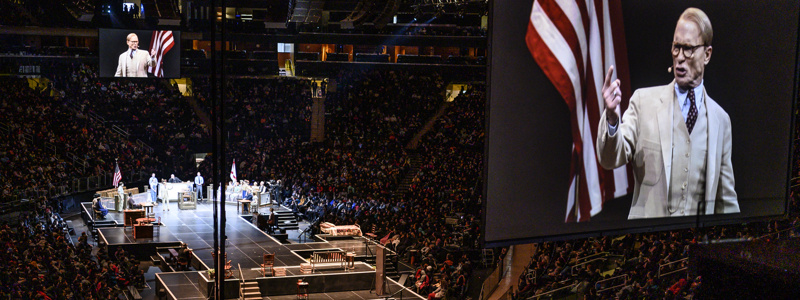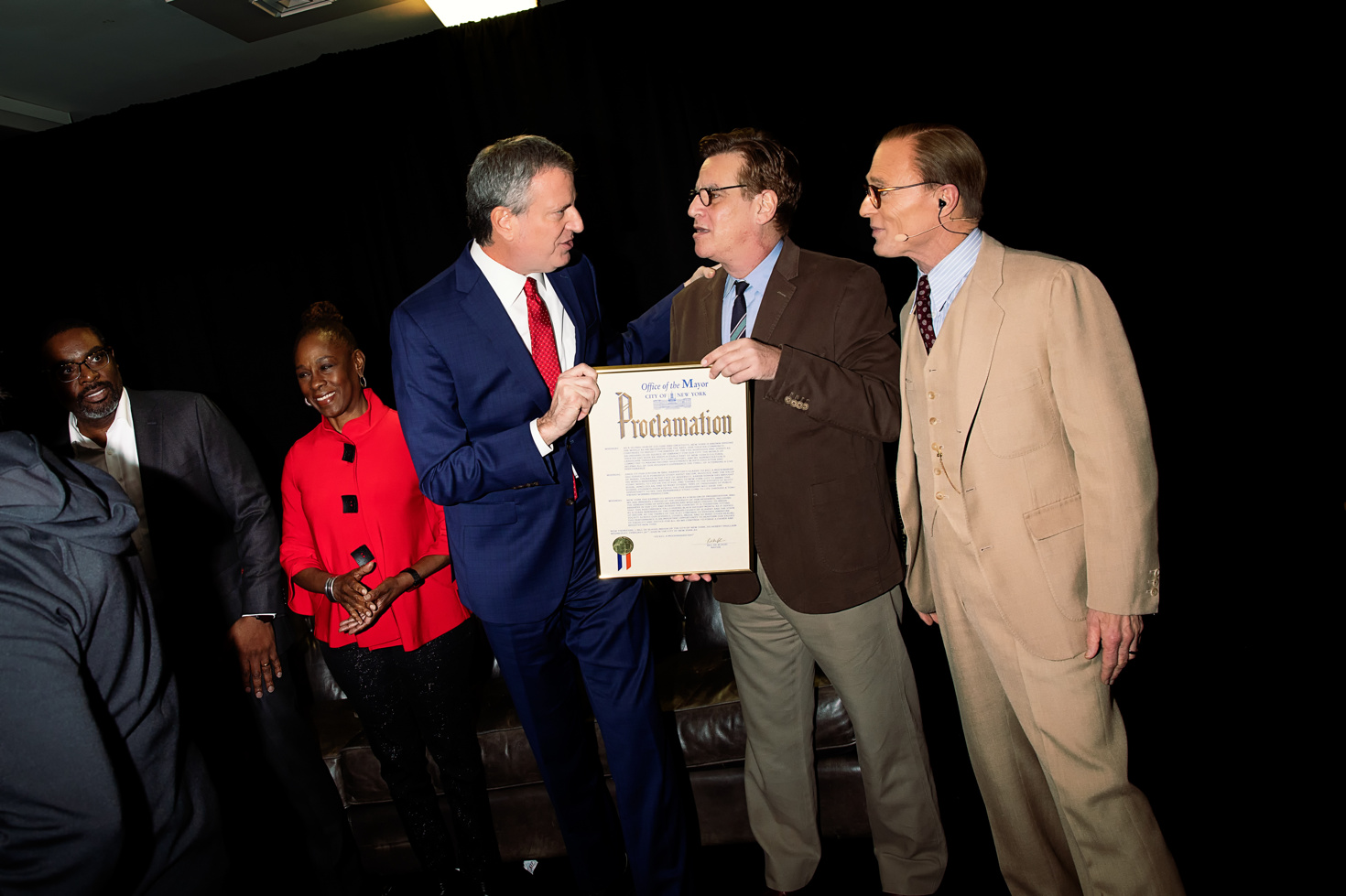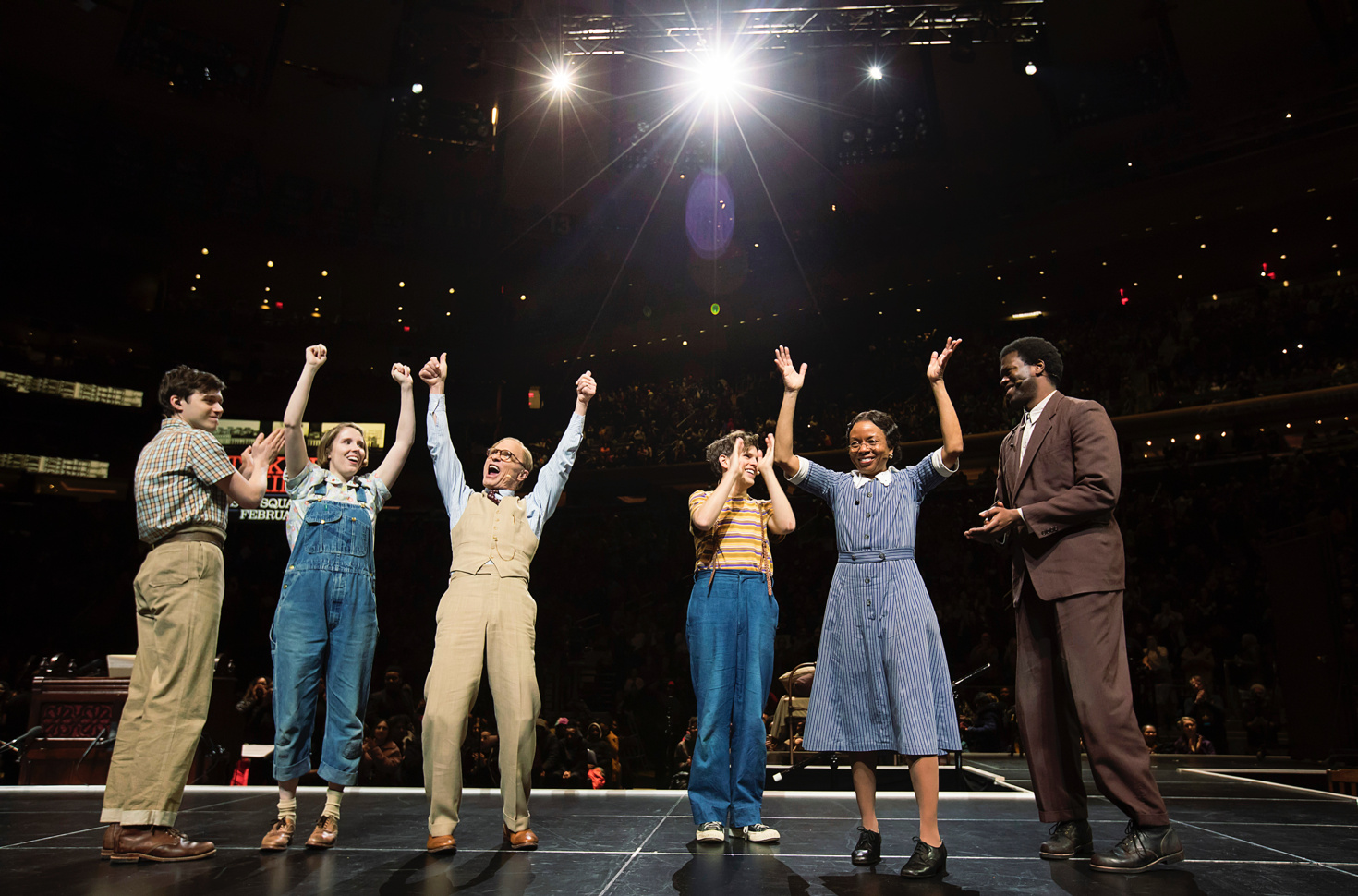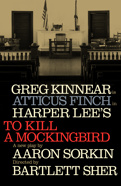
(Photo: Jenny Anderson)
'That's Rock 'n' Roll!' Get Inside Madison Square Garden as 18,000 Students Cheer on To Kill a Mockingbird

The roar of the 18,000-member crowd as the players took their places at Madison Square Garden was enough to knock you back. But this wasn’t a Knicks game; this was an audience of New York City public school students cheering for a play. Madison Square Garden—known more for concerts and sporting events than theater—presented its first-ever play on February 26. Students from across New York City’s five boroughs assembled for a free performance of Broadway's best-selling To Kill a Mockingbird. For cast member Kyle Scatliffe, it was hard to not "have big smiles on our faces," he said with a laugh. "You’ve never heard that many people cheer for you all at one time." The Shubert Theatre, where the drama usually plays, holds a more modest 1,460 seats.
Before Mockingbird began at MSG, Bill de Blasio, mayor of New York City, addressed the students: “This is a moment of history right here, there has never been a play presented in Madison Square Garden in the history of New York City. There has never been a moment where 18,000 public school students gathered here together to see a profound work of art. This is an amazing moment.” To commemorate the occasion, de Blasio also made February 26, 2020 “To Kill a Mockingbird Day.” Of course, MSG cannot hold all of the city’s middle and high schoolers, so the tickets were given away to schools on a first come, first serve basis.

To Kill a Mockingbird, written by Aaron Sorkin based on the classic Harper Lee novel, is set in a small town in Alabama in 1934, where a black man, Tom Robinson (played by Scatliffe), has been falsely accused of raping a white woman. Atticus Finch (Ed Harris) volunteers to be Tom’s lawyer, believing the citizens of the town will do what’s right and not convict an innocent man.
“These characters are presented with a profound challenge: they have to decide if they can act, they have to decide if they have power, or if someone is going to take their power from them,” said de Blasio. He then told the crowd of young people that just like the characters Scout (Nina Grollman) and Jem (Nick Robinson) in Mockingbird, who act as a moral compass for their father, Atticus, the young people in the arena are also capable of making change. “The only way to change the world is if you decide it's your world to change, you hear me?” he said to applause. “You are becoming the voices of conscience more and more in our society. You have to believe in yourself for us all to survive on this Earth.”
Oscar-winning filmmaker (and theater enthusiast) Spike Lee then took the stage, telling his own story of the first time he went to a Broadway show. “For many of you, this might be your first Broadway play,” he said. “My mother would drag me to plays, and I wouldn't want to go. But she took me to Broadway plays. My mother is the reason why I'm a filmmaker today.” He then added, to cheers from the crowd, “There's gonna be somebody here today who says, 'I want to be a playwright, I want to act, I want to spend the rest of my life being an artist.' Do not let anybody tell you you can't be an artist. Follow your dreams!”
But this wasn’t just Mockingbird on Broadway plopped down onto a basketball court. For MSG, the play had been reconceived as a 360-degree experience with audiences on all sides of the stage. On one end of the massive 100 x 40 foot-long stage was the courtroom, on the other end was the Finch’s porch. Camera crews were positioned around the stage, to capture the more intimate moments, which were then fed into the four gigantic screens around the stadium. As the lights dimmed and the play began, it was obvious that the book was read by some of the students before they came to the event: when Harris as Atticus took the stage for the first time, the crowd cheered like he was a rock star. When Bob Ewell (Neal Huff) goes on his racist tangents, there were gasps and hisses.
Perhaps it was because they were in a sporting arena, but the students audibly reacted throughout the event. When Atticus and Bob tussle near the end of the show, they yelled, "Fight! Fight! Fight!" And when Boo Radley (Russell Harvard), who is deaf, exited the stage, a contingent of students waved at him and signed “thank you” as he passed.
Scatliffe said he could feel the audience's energy when he was on stage, especially in the courtroom scene when he took the stand. "It was so silent that for a second, I was like, 'I can’t believe how quiet it is in here,'" he said. "Every time I got to a part of the story that was a little harder, the reactions of everyone going, 'Oh my God!'—it was so overwhelming, but in such a beautiful way. Most of the cast—we were all crying for the second half of the show."

Throughout the event, director Bartlett Sher circled around the stage, looking like a worried coach. When asked after how he felt about the performance, he had only one word: “Relieved.” He then added, “The room is so big, I wasn't sure we were going to reach everybody.” He explained that he and the cast only had eight hours a week for five weeks to reconceive the show. They had just one day to rehearse at MSG. The venue provided the space rent-free for the three days it took to load in, rehearse and perform the production.
No wonder Sher felt reassured when it all went off smoothly, and the crowd gave the cast a standing ovation at the end. “I found the kids to have a deeper appreciation and interaction with the play than we've ever had,” Sher said. “A group of kids that clearly knew the material, and were hanging on every word—that's fun. That's rock 'n' roll!"
Scatliffe hopes that MSG presents more Broadway shows. "You’re giving all 18,000 students reasons to believe that they can be artists and they can be successful, and at the same time, the power that art holds for everyone," he said. "For all of that to happen at once? That’s so wild!"
See highlights from Mockingbird at MSG below!








